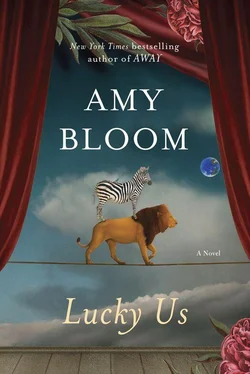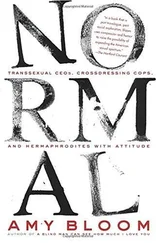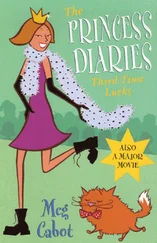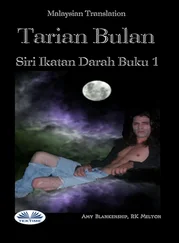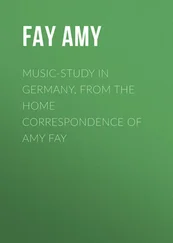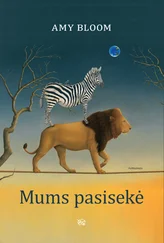“I was brokenhearted when Charlotte died.”
“And poor Iris,” Clara said.
At the wake, his father-in-law pulled Edgar onto the back porch and told him to behave himself. He said that if Edgar couldn’t look after his own daughter, Iris could live with him at the president’s house until she’d finished college or married. Edgar went back into the parlor and recited Browning until every woman in the room cried. Brigid, the Irish maid he’d paid in full before Charlotte died and never again, passed sandwiches and the monogrammed linen napkins Charlotte had had in her trousseau. Ecru with brown embroidery. Haute Ohio. (He used to say things like that to Charlotte, jokes about Ohio, even about the solid, stolid wealthy Reardons and her disapproving father, and sometimes Charlotte laughed, briefly, but after Iris was born, she’d leave the room, carrying the baby, and he knew now that only a fool mocks his wife’s people.) Everything in her trousseau was watered silk or Scottish cashmere or heavy linen, stiff as whipped cream, some distant relatives of Brigid’s having gone blind with the stitchery, which was carefully only brown and tan, so no one would think they were overreaching. He’d told Brigid to use every scrap of monogrammed linen in the house. Coasters curled under drinks, guest towels lay over the racks, and little linen squares rested under plates.
Iris sat by her grandfather and held his hand. She repeated what the guests were saying to him or improved on their remarks in her husky, penetrating voice. Edgar took on the professors and their wives’ sympathy until the sun set in the parlor. His father-in-law left, sad and angry that it was Charlotte, not Edgar, in the casket. Brigid lit all the lamps and cried in the kitchen. Edgar gave her a basket of leftovers and he looked in on Iris, who was asleep on a couch, in her clothes. He has no memories at all of the next six months. He’s a little hazy on the arrival and departure of Hazel and on life with Iris and Eva, except that it was bloody hectic and the girls either fought or Eva sulked or they conspired like thieves. Which they turned out to be, making off with everything but the Reardon family silver, which he’d had to sell by the time he left Ohio. And then there was that great trip east, with the girls running their lines and singing with Francisco, whom he will always love like a brother, his large Mexican homosexual brother. Even if work and life keep them apart, they have a drink every year on Zapata’s birthday and they know there is more if they need it. And now, Great Neck and the Torellis, whose innocence and kindly self-absorption are a gift from God. And, now that odd little boy, a good kid, whoever he is, and his girls, and Iris’s Italian girl, and Clara. Everything else falls like shuffled cards, but the details of each day of his life with Clara stay with him.
Letter from Gus
May 1944
Dear Evie,
They’re offering one-way tickets to Germany again. I talked to Col. Lennart the night we set up for our talent show and he told me he’d seen official papers telling the camps to prepare to keep some of us here after the war ends, just to be on the safe side. When the war is over, they’ll let the Japs go, the idea being that they won’t be hard to find. But Krauts, white and English-speaking, we might be Hitler’s henchmen in waiting, so they’ll be keeping an eye on us as long as possible.
Greta, who has some of that quality of your sister, Iris — that is, she can be a bossy bitch — says, “I have family in Pforzheim.” Since I came to this country when I was a baby, and none of the Heitmanns ever saw fit to take a vacation in Rhineland, I have no idea where Pforzheim is.
“It’s beautiful. It has a big medieval town center. It’s called Die Goldstadt,” she says, “the Golden City. We make watches, we make jewelry, and my aunt and uncle are still there.” I go right back to the colonel and say, with a straight face, that we are volunteering to be repatriated.
We leave tomorrow.
I’ll be seeing you.
Karl Hauser a.k.a. Gus
U.S.A.
October 8, 1944
Dear Evie (and Uncle Sam),
Ellis Island, home of Lady Liberty. We’ve been packed in, like enemy sardines, for two weeks. The other sardines are South American Germans, people with names like Carlos and Juanita Heinzfelt. I have no idea what we are doing with them, or how they got kidnapped by their own governments and delivered to us, but there are hundreds of them, red-faced men in white suits, women in bright silk dresses. We may be enemy aliens but, by God, these people are really foreigners. Most of them don’t even speak English. You hear them screaming in Spanish or crying their hearts out at their end of the hall. Our girls are tired and bored, playing tag all day with a few of the other American kids. No Japs are being sent to Japan and I don’t know if that means that we have something worse in store for them or if it’s just too fucking far. There was talk that the Irish were making common cause with the Germans but I don’t see any freckle-faced people being sent back to Dublin.
They found an old Swedish ship for eight hundred of us, the Gripsholm. It’s bright white and lit up like Christmas. Maybe they hope we’ll be strafed before we get to Germany. It’s the first ocean crossing for us, but some of the older people have been through this before, going the other way, and the South Americans just got off a boat a few weeks before. When we see the Statue of Liberty getting smaller, a lot of people cry and I take the girls to the other side of the ship.
When you and I met, I wasn’t exactly father material. Reenie and I had tried — or we hadn’t tried to avoid having kids — but nothing came of it. I hope it was my fault, that I was shooting blanks. I hope Reenie moves on and I hope she pops out a dozen kids if that’s what she wants.
I’m in love with these two little girls: fat, funny Anna with the biggest blue eyes you ever saw, and Carolyn, with the freckles, already a serious woman. She’s Eleanor Roosevelt at six, but prettier. These are my kids. I can’t imagine how but I hope you meet them.
November 19, 1944
They had a train waiting for us right at the harbor, and down we went, a Noah’s Ark of enemy aliens: miserable Germans, baffled Brazilians, and ten American guards.
Montreux is colder than a witch’s tit. The Swiss are just like the weather. They put the food down on the table and they look away until we leave the dining room. Some of the old people are not so steady on their pins and the Swiss just watch. Fall down, piss yourself, choke on a turnip, it’s all the same to them. Greta’s asked the real Germans for help in making a map to get us to Pforzheim. The South Americans wrap themselves in blankets when they come to meals. They stare at the snow like it’s shit coming down.
The Swiss are not happy to have us here. I bet the Germans will be thrilled.
November 30, 1944
We get to Bregenz. We talk about having a little Thanksgiving celebration but the people born in Germany are not inclined to celebrate and the rest of us feel more like Indians. The South Americans are freezing their asses off and have no idea what’s going on. Greta and I say, “Happy Thanksgiving,” to the kids. Greta asks the kitchen to make an apple pie for the kids. No dice.
December 6, 1944
Friedrichshafen
They swapped the German POWs for American POWs today. The Americans cheered and hugged one another. Then they handed us over to the Germans, like putting out the cat after a long day. The Germans weren’t glad to see us, the Americans didn’t give a damn if we dropped dead, and those South Americans were whisked away so fast I have no idea what became of them.
Читать дальше
